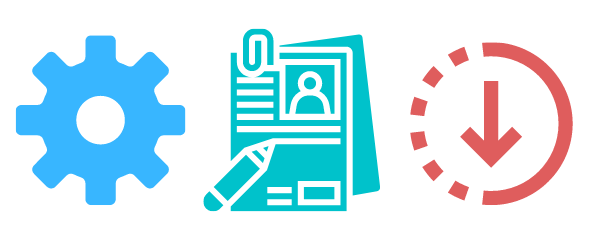
Choosing the Right Medical Schools for You
Before you begin your application, you need to decide which medical schools you will be applying to. Researching the different school requirements and cross-referencing them with your achievements will help you make this vital decision. To help you with this, refer to our blog on Canadian med schools statistics and GPA/MCAT requirements.
If your GPA barely meets the minimum requirement for a school with a relatively low acceptance rate, you might be better off focusing your efforts on other schools for which you would be a competitor. Similarly, if a school is known to accept students from rural areas and you have lived your entire life in a metropolitan city, it would be better for you to put that time and effort into another school.
Applying to medical schools is a lengthy, expensive and time-consuming process. Completing a comprehensive assessment of every school in relation to your resume will help you optimize your time and effort.
References and Transcripts
As soon as application portals open up, you should at least login and take a peek around. This should be sometime in early summer, though exact dates will vary between schools. Even if you don’t immediately answer any of the questions, you will at least have an idea of what is being asked. You can let these ideas simmer while you continue to tackle the other aspects of your application.
You should also contact your references early on to see if they are in fact willing to be your reference and whether they would be able to meet the deadline. This way, you have ample time to reconsider your references if need be.
Medical school reference letters can add significant value to your application.
Once your reference choices are finalized, it’s a good idea to sit down with them and discuss your work or volunteer experience as well as your academic grades and the personal factors that drive you towards medicine. Alternatively, you could send them this information in a detailed document. This way, they will have a comprehensive understanding of your goals when writing your reference letter.
You might be surprised to hear that hundreds of files are closed each year for having missed the transcript deadline.
Requesting your transcript is another task you can complete early. You’ll get it out of the way and guarantee that you won’t miss the deadline.
Personal Essays and Essay Questions
Once your thoughts have simmered for a few days, it’s time to put pen to paper.
Oftentimes, the personal essay and essay questions are challenging to kickstart because we try to get into the heads of the admissions committee members to uncover what exactly it is that they’re looking for. But your ability to accept the challenge and thrive in the face of ambiguity can actually benefit your medical education and future career. In fact, according to a recently published study, the ability to accept a high level of uncertainty is linked to a greater chance of medical school acceptance.
Your best bet is to avoid overthinking and begin with a simple outline. When you start writing your essays, give yourself enough time for several rounds of edits. If you’re sending your work to your admissions consultant, a tutor, or a friend, make sure to inquire about and consider their turnaround rate.
Similarly, it’s important to allow some time between the edits that you make yourself. Staring at your work for long periods of time can be counterintuitive and can lead us to overlooking obvious mistakes.
The same thing applies to the autobiographical sketch. Fitting all the necessary and relevant information into a small box can be difficult and it’s easy to miss important details. But with enough time, you can think and rethink ways to present your experiences so that your every strength is highlighted.
Writing these essays is far more than just jotting down your experiences and fluffing them with a few fancy words. It takes time, effort and lots of brain power.

Organization is Key
Keep in mind that you will likely have other things going on during this period. Whether it be a job, extracurriculars, or schoolwork, other tasks will require your attention. This may even include studying for and writing the MCAT.
Still, your essays shouldn’t just be time fillers. Instead, they should take priority alongside your other duties.
Using a planner or a calendar can help you organize your days effectively and plan ahead. Set deadlines for each task and round of edits and try your best to stick to them. You can also use an online tool like Trello to break down your tasks and create a visual timeline to analyze your progress and make key decisions as you go.
This is a skill that’s transferable to medicine and will definitely benefit your growing toolkit. In fact, medical students have identified the lack of time-management skills as a fundamental stressor to their education. If you’re able to improve and sustain healthy habits even before you enter medical school, you’ll already be a step ahead.
Take Home Message
Start your medical school application while time is on your side. After that, edit, edit again, and then edit some more.

